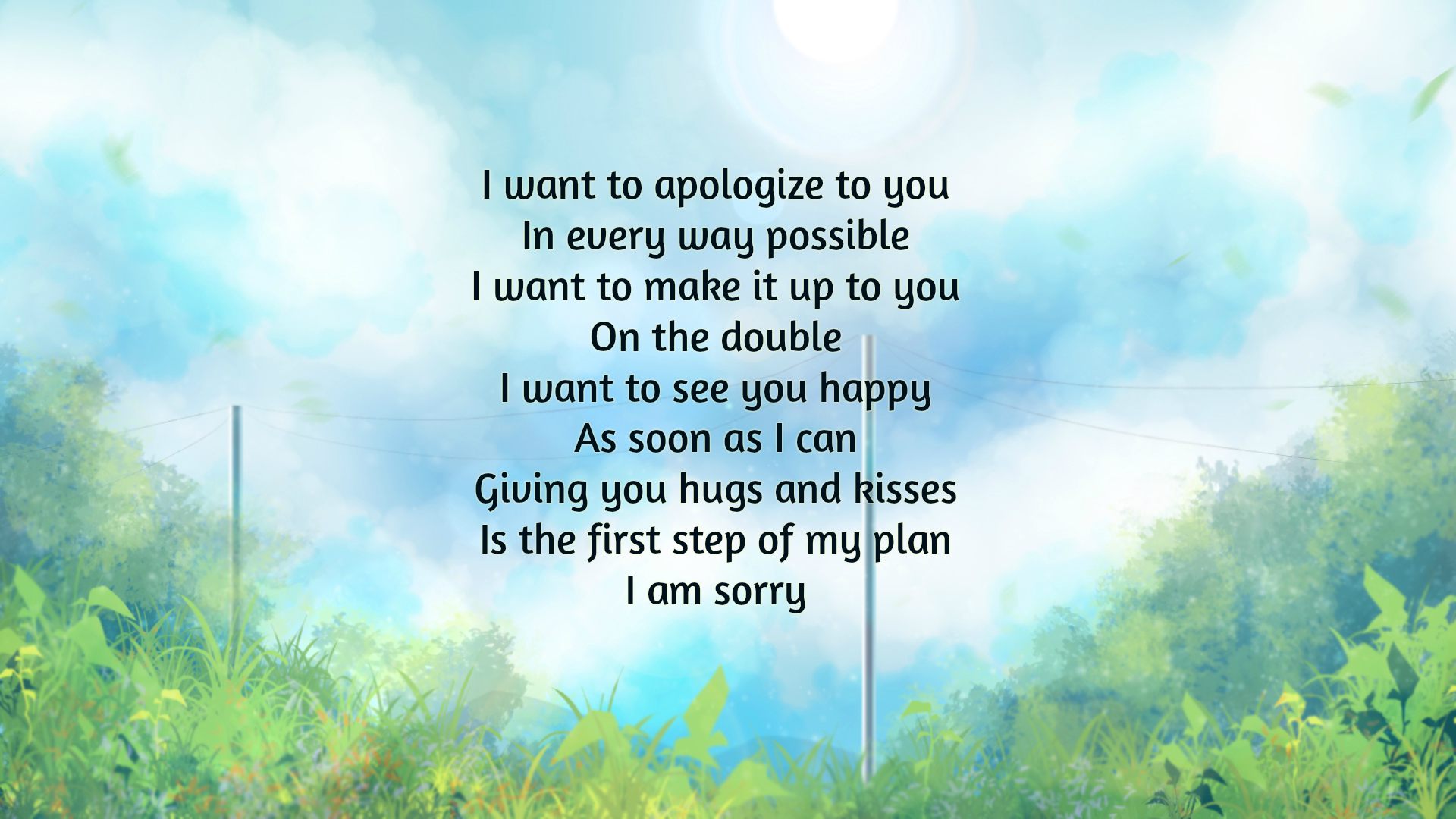
I’m Sorry, Instructions for Living a Life: A Poetic Exploration
In the tapestry of human existence, where threads of joy and sorrow intertwine, lies the poignant lament, "I’m sorry." A phrase laden with the weight of remorse, regret, and a profound desire for absolution. The "Instructions for Living a Life" poem captures this sentiment in a breathtaking tapestry of words, leaving an enduring imprint on our souls.
Unraveling the Poetic Landscape
The poem "I’m Sorry, Instructions for Living a Life" invites readers on a profound journey through the labyrinthine realms of sorrow and redemption. Its verses are a symphony of emotions, echoing the tumultuous tides of human experience. The speaker’s apology reverberates with both personal anguish and a universal plea for understanding.
Embracing Diverse Writing Styles
The theme of "I’m Sorry, Instructions for Living a Life" lends itself to an array of writing styles, each capturing the multifaceted nature of regret. From the lyrical beauty of free verse to the structured elegance of sonnets, poets have explored this theme in countless ways.
A Tapestry of Poetic Expressions
Sonnet of Contrition
Oh, pardon me for wounds I’ve wrought,
For words unspoken, deeds undone.
My heart, consumed with bitter thought,
Seeks solace in the cloak of sun.
Your pain, a dagger in my soul,
A constant torment, day and night.
I long for words that make you whole,
To heal the wounds that pierce with blight.
My sorrow knows no bounds or measure,
A weight that crushes, heavy as lead.
Forgive me, love, at your own leisure,
For I have wronged you, it’s plain as bread.
Now I pledge to spend my days in amends,
To prove my love with every breath I send.
Free Verse Lament
In the vast expanse of life’s design,
I stumble, falter, lost in time.
A trail of sorrows, my mistakes,
I seek redemption for my aches.
"I’m sorry," whispers through the air,
A plea for mercy, a desperate prayer.
The weight of guilt upon my heart,
A burden that tears me apart.
The pain I caused, a haunting ghost,
Torments my soul, a constant host.
Remorse consumes my every thought,
A bitter poison that I’ve wrought.
Forgive me, world, for I have strayed,
My actions reckless, ill-conceived.
I yearn for a chance to make amends,
To mend the broken, heal the bends.
Haiku of Regret
Apologies fail,
Words cannot erase the pain
I caused you today.
Crafting Your Own Poetic Apology
Writing a poem about the theme "I’m Sorry, Instructions for Living a Life" requires a deep understanding of human emotion and an artistic sensitivity to craft words that resonate with the reader. Here are some tips and tricks:
- Embrace vulnerability: Explore your own experiences of regret and sorrow to create a genuine and heartfelt poem.
- Choose evocative language: Use vivid imagery, metaphors, and similes to paint a vivid picture of your emotions.
- Consider the reader’s perspective: Write in a way that allows readers to connect with your own feelings of remorse.
- Be specific: Avoid vague apologies. Instead, pinpoint the actions or words that have caused hurt.
- Offer a path to redemption: While acknowledging your mistakes, express a desire to make amends and move forward in a positive way.
Reading and Appreciating Poetry
To fully appreciate poetry, take time to savor the words, reflect on their meaning, and let your own emotions seep into the verses. Ask questions, search for hidden metaphors, and allow the poem’s message to resonate deep within you.
Questions and Answers
- What is the main theme of the poem "I’m Sorry, Instructions for Living a Life"?
It is an exploration of regret, sorrow, and the search for redemption. - What are some writing styles suitable for this theme?
Free verse, sonnets, haikus, and lyric poems. - How can I write a poem about this theme?
Draw on your own experiences, use evocative language, and consider the reader’s perspective.
In Closing
The poem "I’m Sorry, Instructions for Living a Life" serves as a poignant reminder of the human capacity for both fallibility and forgiveness. Through its diverse poetic expressions, it invites us to confront our regrets, seek redemption, and embrace the transformative power of words.
I implore you to embark on your own poetic journey, crafting verses that explore the intricate tapestry of apology and forgiveness. And remember, plagiarism is a grave offense against the spirit of creativity. Honor the original authors by giving credit where credit is due.
Thank you for sharing this poetic experience with me. May your words always be a source of solace, inspiration, and connection.
